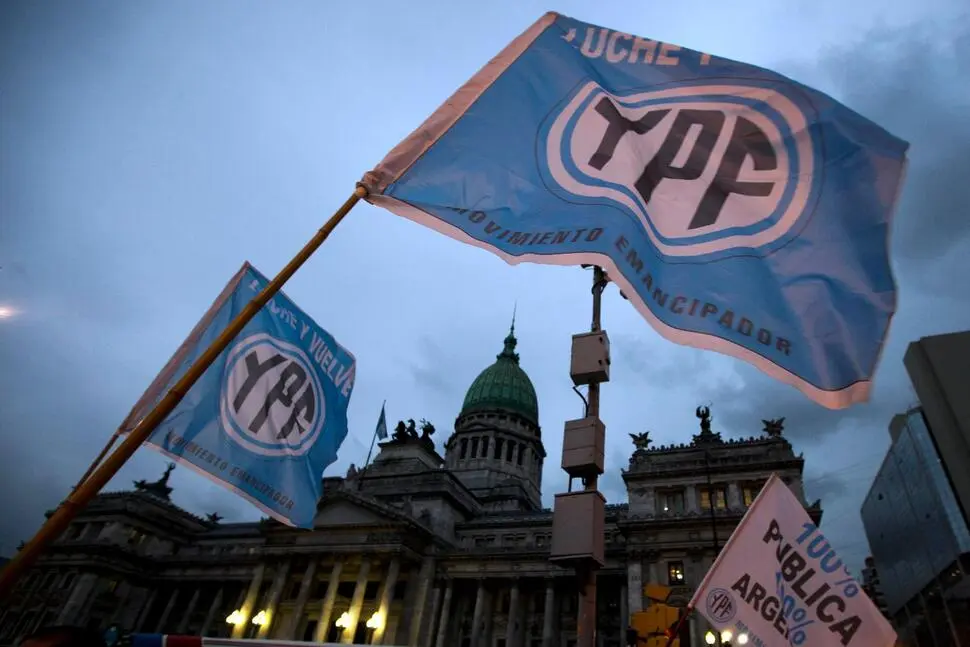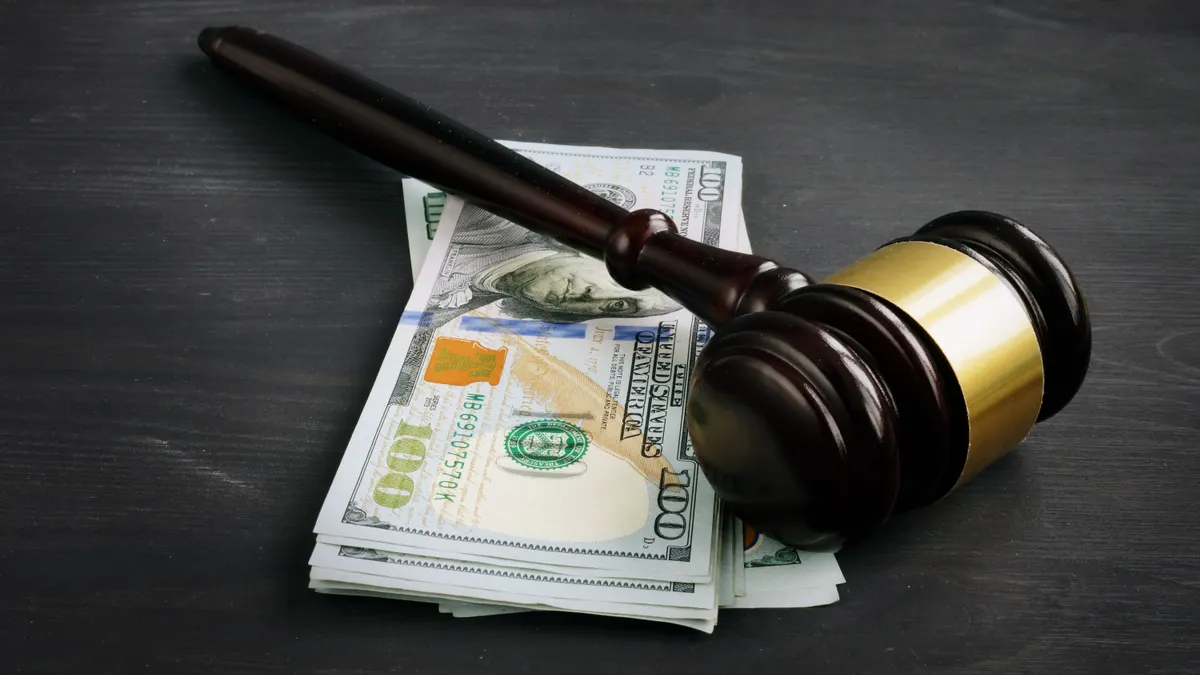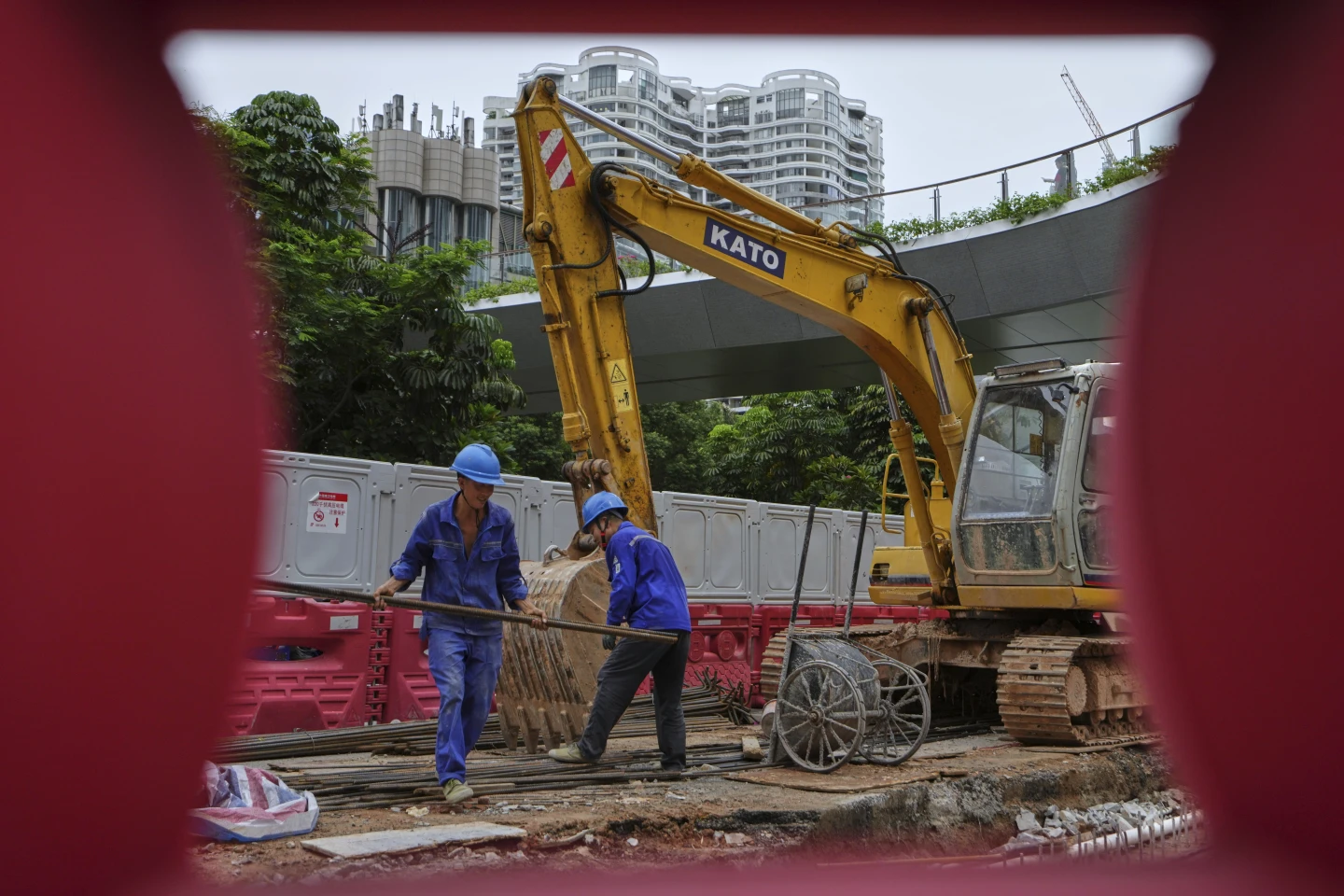U.S. Court Deals Major Setback to Milei: Argentina Ordered to Surrender Control of YPF
In a landmark ruling, a U.S. federal judge has ordered Argentina to relinquish control of its majority stake in YPF, the state-run oil company, delivering a sharp legal and political blow to President Javier Milei’s government as it grapples with economic turmoil.
In a stunning legal decision with far-reaching geopolitical and economic implications, a U. S. federal judge has ruled that the government of Argentina must turn over its controlling stake in YPF, the country's flagship state-run oil company.
The decision delivers a crushing blow to President Javier Milei’s administration, which has already been navigating severe fiscal crises, inflationary pressure, and widespread public unrest since taking office. The case centers on Argentina’s 2012 nationalization of YPF (Yacimientos Petrolíferos Fiscales), during which the government seized a 51% stake in the company from Spanish energy firm Repsol. Though Repsol was later compensated, the manner in which the takeover was carried out sparked a long-running legal dispute involving Burford Capital, a litigation finance firm that acquired the claims of Petersen Energia and Eton Park — minority shareholders who argued that Argentina violated its own bylaws when it failed to make a tender offer to them during the takeover.
The Court’s DecisionU. S. District Judge Loretta Preska, sitting in the Southern District of New York, found in favor of the plaintiffs, ruling that Argentina is liable for damages stemming from its 2012 seizure of YPF shares.
The court ordered Argentina to surrender control of its majority stake — an unprecedented move that could lead to a forced asset transfer or multibillion-dollar damages settlement. The ruling opens a new chapter in one of the most high-profile investor-state disputes of the past decade. According to legal experts, the ruling could eventually require Argentina to pay over $16 billion in damages — a staggering amount for a country already in economic distress.
Implications for the Milei GovernmentFor President Milei, who campaigned on a platform of radical libertarian reforms, the timing could hardly be worse. Just months into his presidency, his administration has been attempting to stabilize the Argentine economy through a series of austerity measures, deregulation, and currency reforms. The court decision not only jeopardizes control over a strategic national asset but also threatens to derail ongoing negotiations with the International Monetary Fund (IMF) and other creditors.
Analysts warn that a multi-billion dollar liability could lead to more borrowing, a weaker peso, and further contraction in public spending. “The Milei administration now faces the prospect of a massive legal and financial crisis on top of an already overwhelming fiscal and political agenda,” said Lucia Moreno, a Buenos Aires-based political analyst. “This is a nightmare scenario for any government — let alone one that’s trying to overhaul decades of economic mismanagement.
”YPF: More Than Just OilYPF is more than just an oil company for Argentina — it’s a national symbol, a key employer, and a pillar of the country’s energy independence strategy. Founded in 1922, YPF was one of the first state-owned oil companies in the world and remains a source of national pride for many Argentines. Following its re-nationalization in 2012 under then-President Cristina Fernández de Kirchner, YPF became a cornerstone of Argentina’s effort to boost domestic energy production and reduce reliance on imports.
It has played a vital role in developing the Vaca Muerta shale formation — one of the largest oil and gas reserves in the Western Hemisphere. The court ruling raises urgent questions about the future of YPF’s management, financing, and investment strategies. Should the company be subject to foreign enforcement actions or asset seizures, its operational stability could be compromised.
Industry experts also worry about the chilling effect this may have on future foreign investment in Argentina. The Plaintiffs’ ArgumentThe legal battle traces back to Argentina’s failure to comply with YPF’s corporate charter during the nationalization process. Under the company's bylaws, Argentina was required to make a tender offer to all minority shareholders before acquiring a controlling interest.
It did not. Burford Capital, which purchased the litigation rights from two former shareholders — Petersen Energia (a Spanish company linked to the Eskenazi family) and U. S.
-based hedge fund Eton Park — brought the case forward in New York, arguing that the nationalization violated both YPF’s bylaws and international norms. “The decision affirms the rule of law and protects the rights of investors, particularly when governments fail to follow their own rules,” said a spokesperson for Burford Capital. “We look forward to working with the court and relevant authorities to enforce the judgment.
”Argentina’s ResponseArgentina’s government has responded with outrage. In an official statement, the Office of the President called the ruling “a gross violation of national sovereignty” and vowed to appeal the decision. President Milei, known for his brash rhetoric and defiant stance against global institutions, condemned the ruling as “judicial imperialism.
”“We will not allow foreign courts to dictate our economic future or seize the assets of the Argentine people,” Milei said in a nationally televised address. “This is an attack on our sovereignty, and we will fight it through every legal and diplomatic channel available. ”Argentina's legal team is expected to pursue a multi-pronged defense, including appeals in U.
S. courts, possible appeals to international arbitration bodies, and even diplomatic efforts through the United Nations. Global and Domestic RepercussionsThe ruling has already triggered volatility in financial markets.
The Argentine peso fell sharply in unofficial trading, while YPF shares, which are traded on the New York Stock Exchange, plunged more than 10% within hours of the news. Credit rating agencies have hinted at potential downgrades, citing legal uncertainty and fiscal exposure. International investors, too, are now re-evaluating the risk of investing in Argentine assets.
The ruling may reinforce concerns about rule of law, legal stability, and the vulnerability of assets in emerging markets — especially those with histories of nationalization. Domestically, the case is intensifying political divisions. The opposition coalition has accused the Kirchner governments of mismanaging the original nationalization process and placing the country in legal jeopardy.
Meanwhile, labor unions and energy sector workers have called for mass demonstrations to protest the ruling. “YPF belongs to the people,” said Sergio Almaraz, a union leader from Neuquén. “We will not let foreign financiers strip it away from us.
”What Comes Next?While the court ruling is definitive in terms of liability, the enforcement phase is likely to be lengthy and complex. Argentina has limited assets in the United States, which means plaintiffs may need to seek enforcement in other jurisdictions — a process that could take years. Some experts believe Argentina may attempt to negotiate a settlement, especially if an appeal appears unlikely to succeed.
However, any settlement would require careful financial structuring, likely involving future earnings from YPF or other assets — a sensitive proposition for a government under immense fiscal pressure. Others warn that non-compliance with the judgment could lead to asset seizures abroad, including bank accounts, diplomatic properties, or even aircraft. Conclusion: A Historic Legal and Political BattleThe ruling marks a turning point in Argentina’s fraught relationship with global markets and underscores the risks of state intervention in strategic sectors without proper legal protocols.
For President Milei, who came to power promising economic liberalization and legal order, the decision represents both a test of his leadership and a challenge to his reformist agenda. Whether he can shield Argentina from the legal and financial consequences remains to be seen. One thing is certain: the fate of YPF, and possibly Argentina’s economic recovery itself, now hangs in the balance of an international legal battle — one that may define the next chapter in the country’s complex journey through sovereignty, capitalism, and justice.
23rd july 2025



